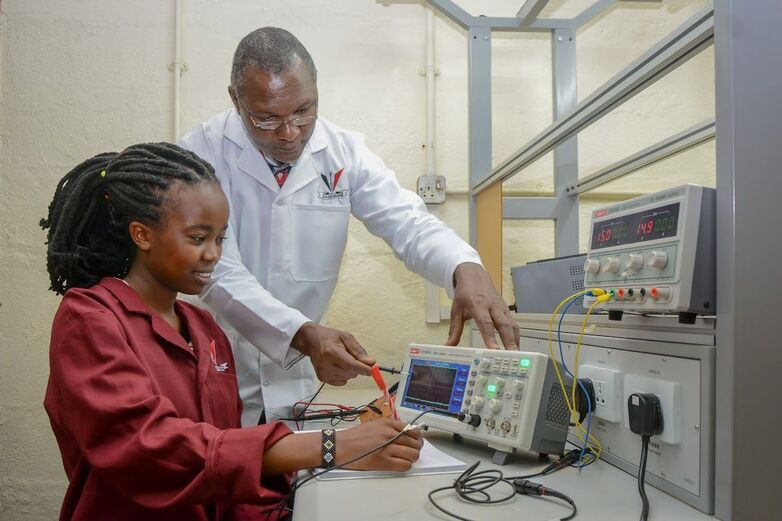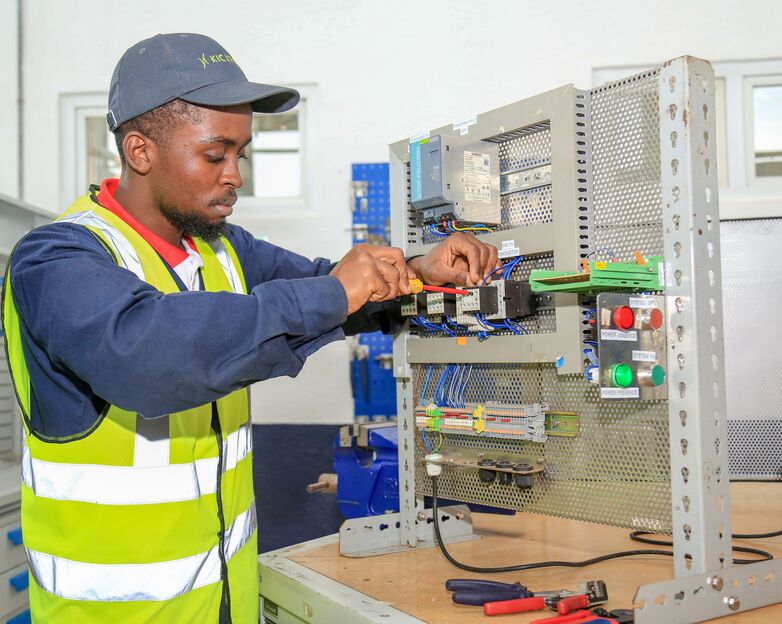Establishing Dual Vocational Education and Training in Kenya
Promoting Youth Employment and Vocational Training in Kenya
-
Commissioning Party
German Federal Ministry for Economic Cooperation and Development (BMZ)
-
Cofinancier
Ministry for Foreign Affairs of Finland
-
Country
-
Lead executing agency
More
-
Overall term
2023 to 2026
-
Products and expertise
Economic development and employment

Context
Kenya has a high rate of unemployment – especially among its young people, around 37 per cent of whom live under the poverty line.
Meanwhile, the country has a shortage of qualified workers in many industries, which is hindering economic growth. Kenya's education system does not adequately address the needs of the labour market and rarely involves the private sector in the design and implementation of vocational training measures. As a result, the Kenyan vocational education and training system is unable to produce the skilled workers the country needs. Companies also criticise the high costs involved in providing additional training to recent graduates so that they can work productively.
For these reasons, Kenya’s government has prioritised reforms that are designed to ensure better, more relevant vocational training. One of these measures is to implement and promote dual vocational training, thereby providing for a more practical focus.

Objective
Inclusive dual vocational training programmes that are relevant for the labour market and geared towards young people in all five regions of Kenya have been integrated into the country's vocational education and training system.
Approach
The project is carrying out activities in five fields of activity:
It is supporting the process of incorporating dual vocational training into the legal framework of Kenya's vocational education and training system.
It is giving shape to processes and elements involved in dual vocational training.
It is establishing inclusive dual vocational training programmes that are relevant for the labour market at vocational schools and training companies across the country.
The project is also helping to make dual vocational training an integral part of Kenya’s state qualification system for vocational education and training.
Furthermore, it is increasing the quality and efficiency of dual vocational training by implementing hybrid learning formats. This involves combining digital and standardised training components.
Last update: June 2023






